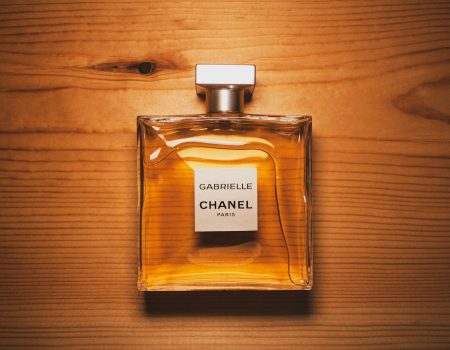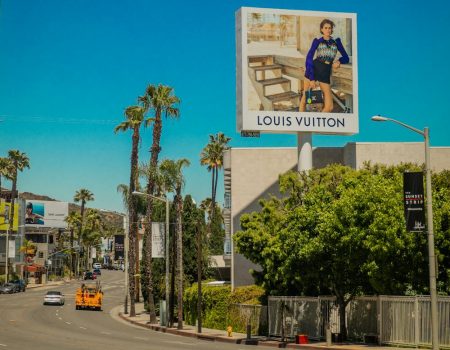
Defining Luxury Brands
Well, we all know that a luxury brand is associated with high quality, exclusivity, and premium pricing. Understandably, these brands use their top quailty craftsmanship, superior materials, and attention to detail to create products that are sought after by a wealthy and discerning clientele
When you think of a luxury brand you normally think of fashion and accessories. Perhaps even of perfumes, cars and home goods. If you would like to know more on perfume logo design ideas.
Not surprisingly, luxury brands are known for perfect customer service where every small detail counts. You can say that it is the combination of perfect customer service and high quality goods that sets theses companies apart from others.
Key Characteristics of A Luxury Brand
But what are the key characteristics of luxury brands? Well, in short, they are known for their unique characteristics that set them apart from other brands. We talked a little about the customer service and top quality being the definition of luxury brands. However there are other characteristics that plays an important role.
These characteristics include:
- Premium Quality
- Exclusivity
- Perfect Customer Service
- Marketing and Advertising
- Innovative Ideas
- Heritage and Tradition
- Super High Prices
Premium Quality
Of course, premium quality is the main key to being a luxury brand. Without impeccable quality no one would buy from you. Your products will have to speak for themselves. A luxury brand’s focus is on quality over quantity. How instance, you will need to use rare and expensive materials to produce your goods. If you skim on quality the discerning customer will soon find out and go somewhere else.
Exlusivity
Everybody wants to feel special so it is your job to try to make customers feel that this exclusive deal is only for a limited few. Limited distribution followed by a loyal following is also a key ingredient in being and staying among luxury brands.
Perfect Customer Service
So, yes a perfect customer service is requirement. In fact, I can argue that is the most important characteristic for luxury brands if they want to keep their customers or attract new ones. A smile and excellent service goes a long way. Nowadays to work in customer service for certain companies also requires a lot of knowledge and patience as some people they will come across will not be nice.
Marketing And Advertising For A Luxury Brand
One thing luxury brands spend a lot of money on is marketing and advertising. With the goal of creating a heightened sense of desire and exclusivity. Sometimes they use social media influencers or famous people to attract the right kind of clientele.
Furthermore, their marketing and advertising efforts are designed to evoke an image of sophistication and a lifestyle of luxury which their customers aspire to and identify with. This is the person you want to be or become once you have purchased their products.
Actually, even if the poor population is for ever growing, and cities wealth gaps is becoming bigger. So, basically there are a few rich ones but their number is increasing. Therefore, the demand for luxury brands is fuelled by a growing number of wealthy consumers who wants exclusivity, rarity, and status symbol products.
Luxury brands are not just about products but about experiences that create a sense of belonging to an elite group of people who appreciate design and who wants to live a certain way.
Innovative Ideas
Innovation goes with luxury brands as they constantly have to try to make new exclusive products to attract the lucky few. Companies have to try to set new standards in design so to have a good innovation team is crucial if you want to stay ahead of the game.
Heritage And Tradition
Now, we come to the characteristic heritage and tradition. These two are important as you need a good brand story and brand extension to be able to create a tradition in your luxury brand. Customer likes tradition and the thought of being part of something that lasts. Tradition is somewhat associated with quality and value.
Super High Prices
Make it expensive! You have to be expensive to be exclusive. Do put the prices hight and unobtainable for most, otherwise you won’t attract the kind of customers. That is to say, customers with money is exactly what you want. You probably dont have to sell too many of you product to make a profit but you need to set your prices super high so that you can afford to produce the top quality that is expected.
Exploring the World of A Luxury Brand

Above all, for most people luxury brands are not only a symbol of status and prestige, but also a reflection of one’s personal taste. In the extremely competitive market, only the most iconic and innovative companies can thrive.
Looking ahead to 2024, we predict that Louis Vuitton, Gucci, and Chanel will continue to dominate the luxury sector. Most of all, thanks to their incredible creativity, craftsmanship, and brand image. Furthermore, Louis Vuitton’s monogrammed signature and very iconic designs have made it the standout brand in the industry.
On the other hand, Gucci’s bold and daring styles have attracted a younger rich audience. Very cleverly done without sacrificing its classic appeal. Chanel’s timeless elegance and signature tweed suits have long been synonymous with luxury fashion. More importantly the company has also managed to stay ahead of the game by expanding into diverse sectors such as beauty and accessories.
These luxury fashion powerhouses have not only stood the test of time, but continues to set the benchmark for excellence in the fashion industry.
A Closer Look at the Luxury Brand Phenomenon
However, the fashion industry is constantly evolving. New trends and fads popping up every season. One phenomenon that has remained constant, however, is the allure of luxury brands. From Gucci to Chanel, luxury brands have a certain cachet that sets them apart from their more affordable counterparts. Why are we so drawn to these brands? It may have to do with the history and exclusivity associated with them.
Many luxury brands have been around for decades, and the craftsmanship and attention to detail that goes into their products is unparalleled. Additionally, they often have a limited distribution, making them even more exclusive.
But it’s not just about the products themselves. Actually, owning a luxury brand item is a status symbol. More so, a way to showcase one’s wealth and taste. As our society becomes more and more focused on consumerism and material possessions, it’s no wonder that these companies continue to flourish.
The Significance of Luxury Brands

Understandably, a luxury brand is known for their exclusivity and sophistication. They are often associated with status and high quality craftsmanship. Even, allowing individuals to showcase their personal taste and social standing in a friendly and approachable way. These brands play a significant role in the global economy.
The Impact On Environment
Thankfully, luxury brands have been impacted greatly by the environment in recent years. More and more, consumers are counting in environmental practices when making purchasing decisions. In fact tis means that luxury brands must prioritize sustainability to remain competitive. This should of course be obvious to everyone.
Such efforts range from eco friendlier packaging to the use of responsibly sourced materials. Additionally, brands must take into account their carbon footprint and work to reduce it through ethical practices and responsible sourcing.
Furthermore, there is also a growing trend toward circular fashion, which champions recycling and repurposing old clothing to reduce waste. Of course, brands must embrace this trend and find ways to incorporate it into their operations to stay relevant. Ultimately, luxury brands have a responsibility to lead in sustainable practices, not only for their own success but for the longevity of the planet.

Last Few Words
Overall, luxury brands are a symbol of high-end luxury and exceptional quality, which makes them highly coveted by many.
In conclusion, luxury brands represent more than just material possessions. In fact, they offer status, exclusivity and a sense of identity. A little surprisingly, these companies have been able to withstand economic downturns where small companies have sometimes failed.
Mostly because they have created a loyal customer base by consistently delivering high quality and unique experiences.
One problem they need to consider more is the increasing importance of sustainability and social responsibility. The environment needs to be the most important aspect not profits.
